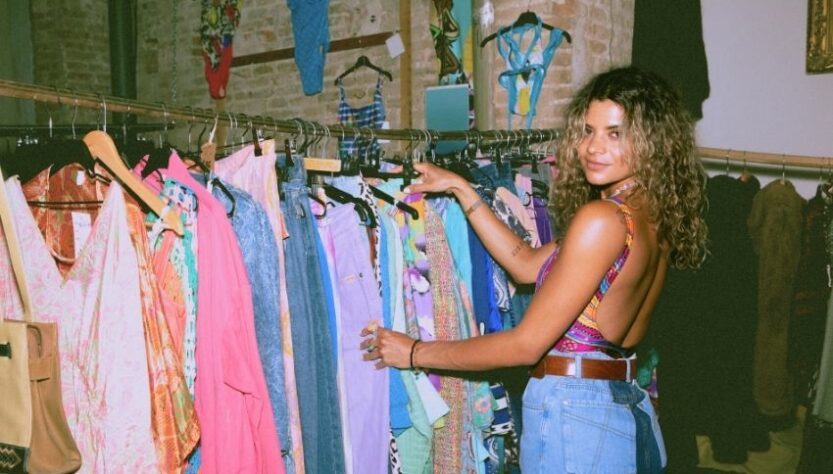In the bustling world of online second-hand fashion marketplaces, a recent development has sent shockwaves through communities relying on platforms like Vinted, Depop, and eBay. The introduction of new rules, colloquially termed the “side hustle tax,” by HM Revenue and Customs has sparked concerns and questions about its implications for those trading in the realm of pre-loved clothing.
Deciphering the Side Hustle Tax: Will You Be Affected?
The panic ensued when it became apparent that individuals supplementing their primary income by selling clothes may now be subject to taxation under the new regulations. The rules, implemented this month, target a broad spectrum of online services and trading activities, from Airbnb rentals to the sale of clothing. Specifically, anyone earning £1,000 or more in additional income through selling goods or services in one financial year falls under the tax umbrella.
Crucially, the differentiation lies in whether the item being sold is deemed a “personal” possession and if a profit is being made. According to HMRC guidelines, there is no tax obligation on personal possessions sold for £6,000 or more if no profit is made. However, profits from the sale of personal possessions exceeding £6,000 may incur Capital Gains Tax.
The focus of the new rules is on non-personal possession sales. If an item is purchased with the intent to sell for profit, it is not considered a personal possession, and earnings from its sale will count toward the £1,000 tax-free yearly allowance.
Marketplace Reporting Requirements: Changes Coming in January
Starting in January, online marketplace sites such as Vinted and Depop will be mandated to report the financial details of sellers who have conducted 30 transactions or more, earning over £1,735, to HMRC. This includes providing bank account details along with a transaction history. While this aims to ensure tax compliance, it has also triggered concerns within the selling community.
A spokesperson from Depop sought to allay fears, emphasizing that the obligation for tax reporting remains unchanged. The spokesperson clarified that the reporting requirements pertain to a small percentage of sellers, specifically those who make a profit from selling secondhand items.
Backlash and Concerns: Impact on Sustainable Fashion
The tightening of regulations aligns with the UK’s commitment to the Organisation for Economic Cooperation and Development (OECD). However, it has sparked a backlash from sellers who have found a source of income in flipping thrift finds and vintage treasures online.
Harry Tibble, founder of the popular Depop shop turned archive fashion site La Nauseé, expresses concern that the tax rule may discourage sellers, potentially slowing down the sustainability momentum gained in recent years. He emphasizes the impact on sustainability, citing that a significant portion of Depop purchases prevents the sale of new items, according to a company report.
Jamie Cameron, co-founder of second-hand shop Dunno. Curated, sees the tax as taking away from those contributing to a positive economic and environmental cycle. The belief is that the tax may dissuade individuals from participating in the economically beneficial and sustainable practice of second-hand clothing transactions.
In conclusion, the introduction of the “side hustle tax” raises questions about its potential impact on the vibrant second-hand fashion market. As sellers navigate these new rules, concerns about sustainability, economic impact, and the overall dynamics of fashion resale platforms come to the forefront. The evolving landscape prompts a reevaluation of how these platforms contribute to both individual incomes and broader environmental goals.
